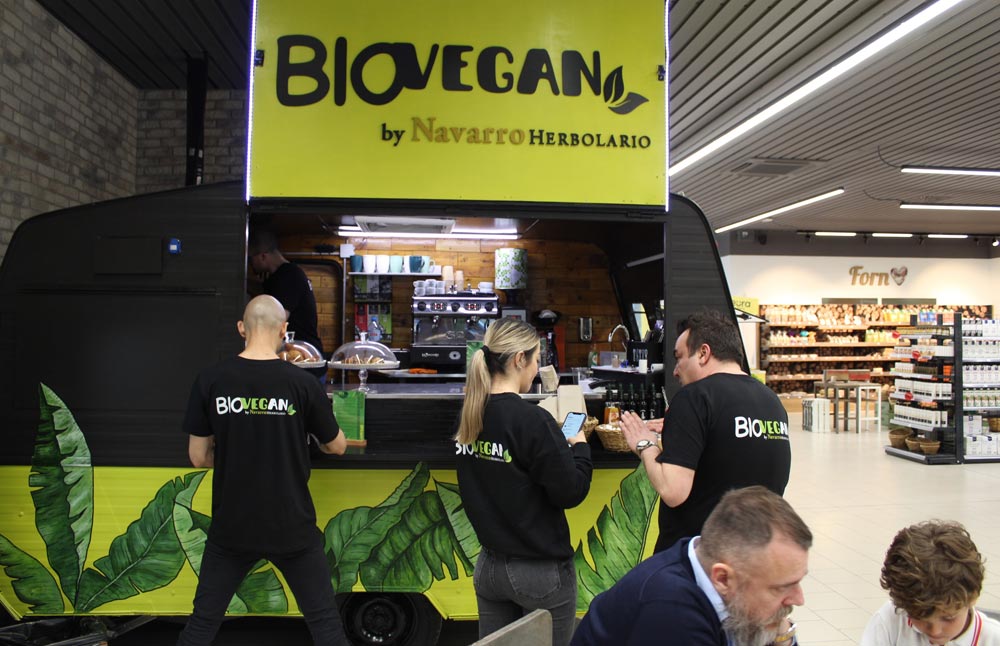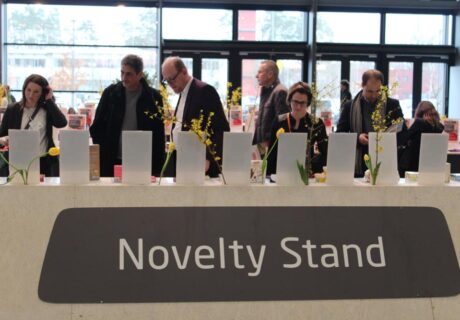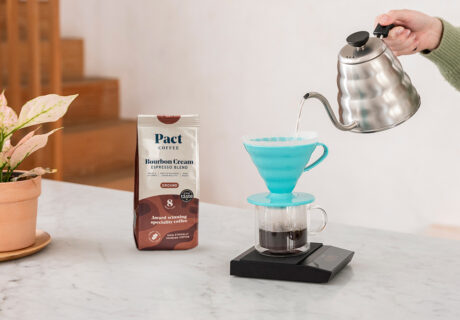Specialist natural and organic retailers are finding ever more imaginative ways to create added value, helping to grow a loyal and informed customer base. “The days when you could just open the doors to your store and think that made you retailer are long gone. Today, retailing is about experience, it’s about theatre, education and performance.”
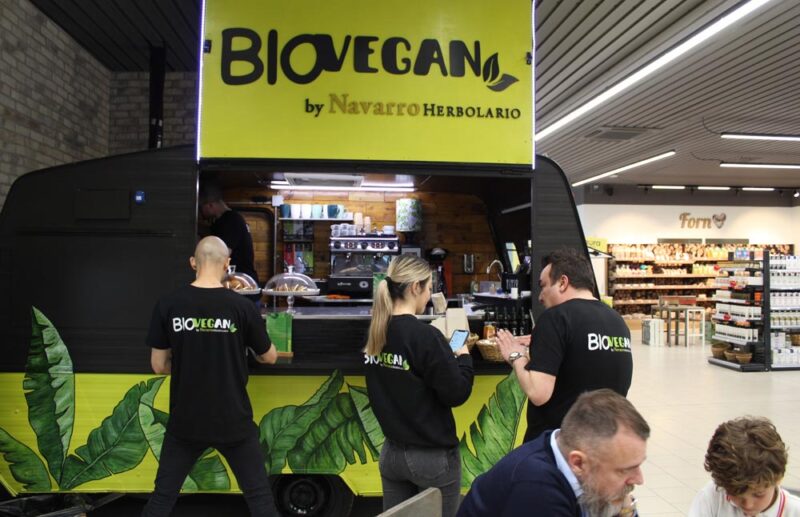 ©Bio Eco Actual. New food truck at Herbolario Navarro
©Bio Eco Actual. New food truck at Herbolario NavarroThat’s the view of UK-based health store owner Cheryl Thallon. As well as an experienced retail business owner, Thallon is also the founder of the ethical supplements brand Viridian and a former journalist covering the natural and organic sector. That unusually broad experience gives her an almost unique perspective on the country’s specialist health retail scene and has made her a powerful advocate for community retailing.
Thallon says that one of the most striking features of the UK natural and organic retail scene is the strength of the independent channel. There are around 1,000 ‘Indies’, mostly in single-store ownership, often family-owned (in the US they are known as ‘mom and pop’ stores). 20 years ago these stores were the only places shoppers could reliably find organic, Fairtrade, vegetarian and free-from foods. Now all of these categories have migrated into the supermarkets, where they are often sold at lower prices. So, it is partly out of commercial necessity that independents have had innovated so effectively to differentiate themselves from the major supermarkets and add value to their offer.
Reimagining retail
Cheryl Thallon says specialist health and natural food stores are having to reimagine themselves to stay relevant, as shopping habits change sharply. “You’ve got try out different things, and see what works in your location. I’m a big believer in embedding my store, Sheaf Street Health Store, in the community and town we serve.”
Even small stores often now have a cafe area, offering hot and cold drinks, lunches and healthy takeaways. Unused rooms are frequently used as clinics, which are rented out to local therapists. As well as generating additional income, the therapists often refer their clients back to the store with products recommendations, creating a perfect symbiotic relationship. In-store sampling, cookery demonstrations and educational talks help to create retail theatre and attract new customers. Moveable bays and furniture mean that an event space can be created even in a relatively small store.
Multi-purpose venues
A spokesperson for the retailer trade association Health Stores UK told Bio Eco Actual: “Specialist natural products retailers are increasingly becoming multi-purpose venues. While in-store product sales remain the primary function and income stream, store owners want to extract maximum value from the premises they own or lease.
“Our members are doing some incredibly creative things. Many of our stores now stage evening events. One recently organised a Fairtrade fashion show and another has a regular ‘club night’, with the owner acting as a resident DJ! Other stores have collaborated with neighbouring retailers, to encourage a cross-pollination of customers. And as an association, we run monthly online discussions where members share experiences about events they have staged, and practical tips on how to make them successful. Crucially, these events and initiatives can lead to a significant uplift in sales. One of our members recently paid £35 (€40) to rent a stall in a local market and it led to an additional 180 people visiting her store on that day and £1100 (€1300) of additional sales.”
Testing, testing
Larger health and wellness chains are also expanding their offer in a bid both to drive sales and harness their specialism. For example, leading UK health food chain Holland & Barrett recently announced that it was partnering with medical testing specialist DNAnudge to launch express DNA testing.
The in-store test, which delivers results to a customer’s smartphone in just 20 minutes, is designed to offer “on-the-spot genetic insights for skin health and improved sleep”. Specifically, the test shows whether customers are either ‘fast’ or ‘slow’ caffeine metabolisers, as well as assessing the oxidative stress on their skin. Holland & Barrett says store advisors will help customers use their DNA report to “find bespoke product recommendations tailored to their unique biology”. This is just the type of added value service that is too specialised for supermarket rivals to copy.
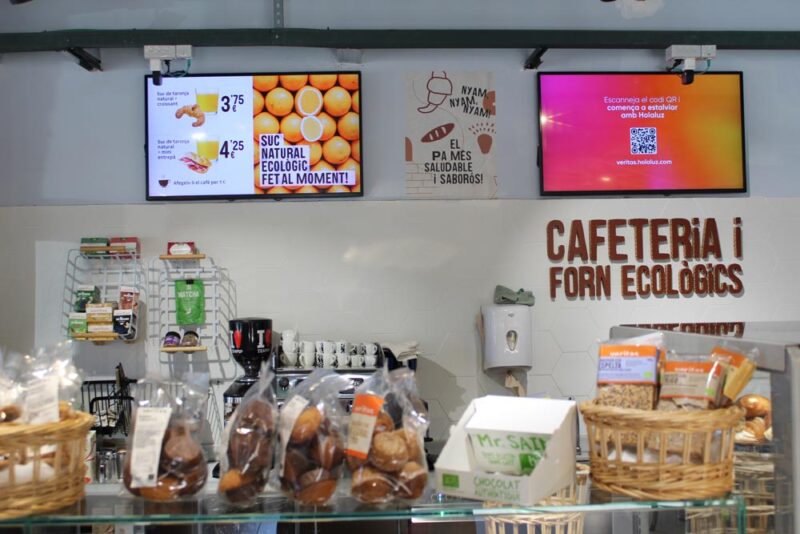 ©Bio Eco Actual. Cafeteria section at Veritas
©Bio Eco Actual. Cafeteria section at VeritasHolland & Barrett has also started installing private wellness consultation rooms in its new stores. As well as adding another point of difference, this is a very visible way for the retailer to advertise its ‘qualified to advise’ scheme (in which store staff are trained to a pre-university standard qualification in health and nutrition).
London-based Planet Organic meanwhile has been staging a series of evening discussions in its stores with high-profile change-makers in the food and eco sectors. The retailer wants to proactively engage its customers at a deeper level on the values that underpin its business ethos. As well as creating better informed shoppers, this also helps builds customer loyalty and encourages consumers to think as citizens.
Breaking out
Breaking out of the traditional store format is another way retailers are putting themselves in front of new customers. Last year Herbolario Navarro introduced its first food truck. to enable consumers to try healthy versions of street food favourites in entirely new and varying venues. Inspired by the success of its in-store cafeterias, the retailer decided that food trucks would offer an engaging way to “bring healthy fast food with organic and local products closer to more people”.
Partnerships with other retailers are also seen as a promising option. In-store concessions, co-locations and store-within-a-store formats are all being explored. Last year Veritas announced that it was teaming with sports retailer Decathlon to create a branded space in Decathlon’s Rivas-Vaciamadrid outlet. Decathlon believes that aligning with organic and healthy food specialist Veritas is a good fit for its business. In the UK, Holland & Barrett this year announced that it would be opening mini-stores inside three branches of the fashion retailer Next.
Italian natural products retailer NaturaSi has created an ambitious Farming Festival, being held in September 2024 at the Saint Michael Jesolo biodynamic farm. The event promises “a unique opportunity to learn about the projects that revolve around the NaturaSì ecosystem” and will feature discussions, live music, tastings, workshops and story-telling.
Adding value, building customer loyalty
Specialist retailers are successfully innovating in all sorts of creative ways to add value, build customer loyalty an expand awareness of key health and sustainability areas.
In-store events. From in-store talks to sustainable fashion shows, stores are becoming a stage for all types of events that add value and boost sales.
Cafés and food-to-go. In-store cafés make retail venues more social places (“some of the best conversations we have starts in our cafés,” says Better Food Company founder, Paul Haughton. A food-to-go offer attracts the young professionals demographic
Collaborate with other retailers. Collaborations between retailers on the same street can have surprising benefits. For example one organic retailer gave a presentation at a nearby beauty salon on natural and organic beauty, boosting sales in its own store and connecting with new customers.
Non-traditional locations. Some leading natural products retailers have successfully introduced co-locations and concessions in non-traditional locations. UK-based Holland & Barrett, for instance, recently announced a new partnership with the fashion retailer Next.
Support local. Stocking more locally produced products is proven to increase sales, and underlines your commitment to sustainable sourcing. For brands, highlight companies from your region, for fresh produce aim for hyper-local. For chains, ‘local’ means local to a particular store.
Demonstrate your values. Specialist retailers can add value by broadcasting their values and projecting their business personality, further differentiating themselves from homogeneous supermarkets chains. French organic cooperative Biocoop, for example, makes very visible its commitment to ‘no-GMOs’, ‘no ultra-processed’, ‘supporting local’ and ‘fair’, and its target of being ’50% bulk-buy by 2025’.
Festivals, fairs and local markets. Participating with local festivals, fairs and markets and can lead to increased store footfall and reach new customers.
Loyalty cards/apps. Many retailers offer loyalty cards and discounts. Bespoke apps such as the one operated by Germany’s Bio Company allow more sophisticated integration of of these benefits along with in-app access to magazine-style articles.
Retailer clubs. Retailer clubs – such as those operated by Veritas and Sweden’s Life chain – deepen engagement with consumers and typically include regular discounts, newsletters, bonus points and access to exclusive events
Author: Jim Manson, Journalist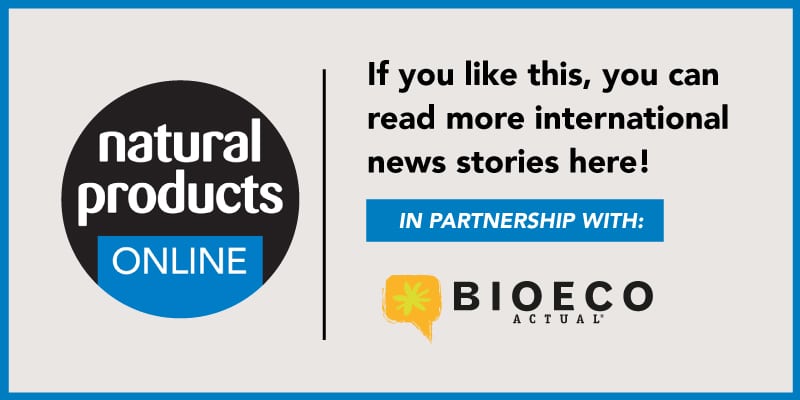
The article How specialist retailers are adding value to thrive in challenging times appeared first on Bio Eco Actual.


